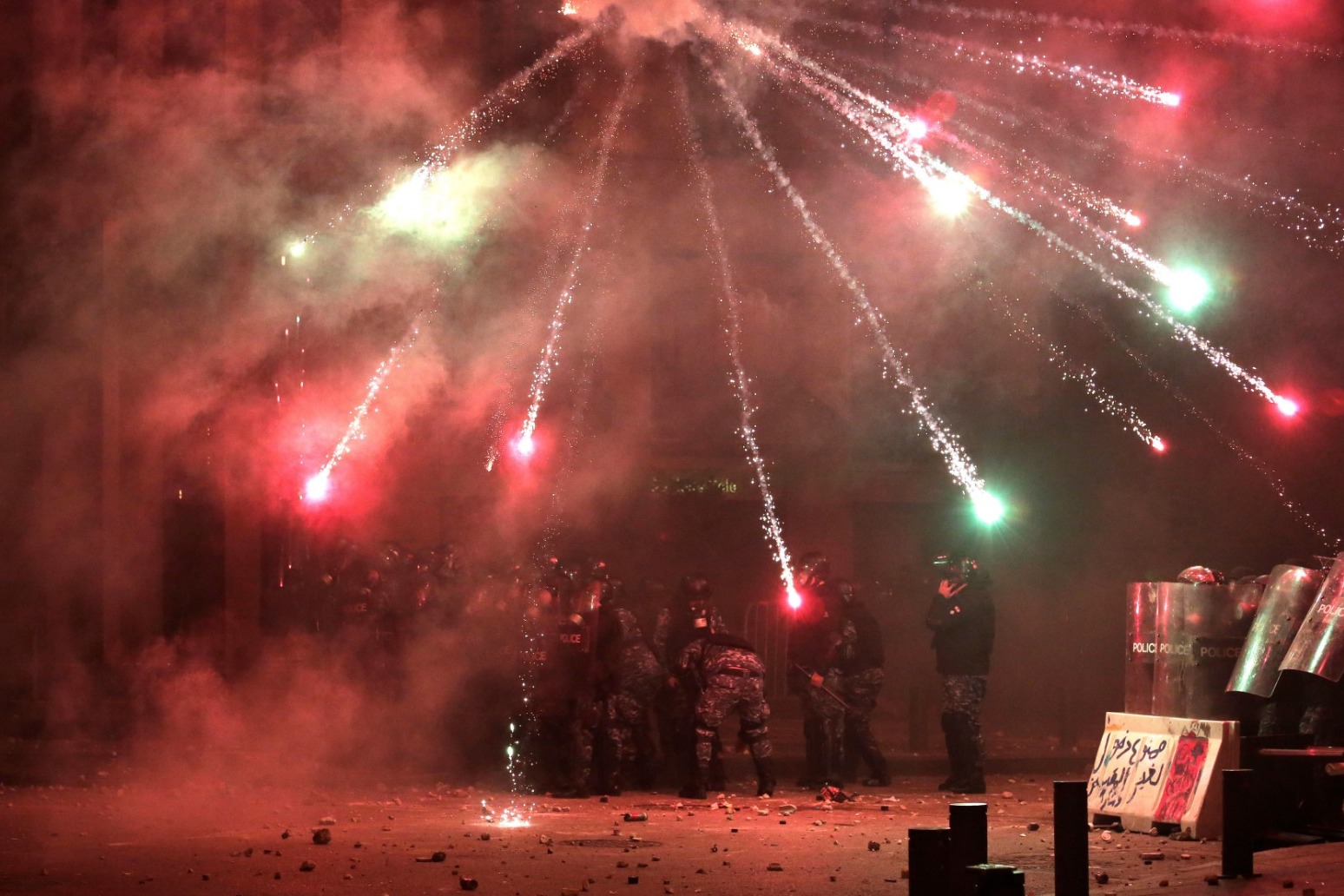
Police fire tear gas at protesters in Beirut
Riot police have fired tear gas and rubber bullets and sprayed water cannon near the parliament in Lebanon's capital to disperse thousands of protesters after riots broke out during a march against the ruling elite.
More than 150 people have been injured during the unrest in Beirut, which took place as Lebanon faces an economic crisis.
The violence began when some protesters started throwing stones at police deployed near the parliament building while others removed street signs and metal barriers and hurled them at security forces.
Thick white smoke covered the area as police and protesters engaged in confrontations that saw groups of young men hurl stones and firecrackers at police. Some protesters were seen vomiting on the street after inhaling the tear gas.
As rioting took place in central Beirut, thousands of other protesters arrived later from three different parts of the city to join the demonstration.
The Lebanese Red Cross said it took 65 people to hospital, while 100 others were treated on the spot.
Later, most of the protesters were forced out of the area by police firing tear gas and sometimes rubber bullets. Security remains tight, and reinforcements have arrived.
Lebanon has witnessed three months of protests against the political elites who have ruled the country since the end of the 1975-90 civil war.
The protesters blame politicians for widespread corruption and mismanagement in a country which has accumulated one of the largest debt ratios in the world.
The protesters had called for a demonstration on Saturday afternoon with the theme "we will not pay the price", in reference to debt that stands at about 87 billion dollars (£66.6 billion), or more than 150% of GDP.
Panic and anger gripped the public as they watched their local currency, pegged to the dollar for more than two decades, plummet, losing more than 60% of its value in recent weeks on the black market.
The economy has seen no growth and foreign inflows have dried up in the already heavily indebted country that relies on imports for most of its basic goods.
Meanwhile, banks have imposed informal capital controls, limiting withdrawal of dollars and foreign transfers.
Earlier this week, protesters carried out acts of vandalism in a main commercial area in Beirut targeting mostly private banks.
Adding to the crisis, Lebanon has been without a government since Prime Minister Saad Hariri resigned on October 29, meeting a key demand of the protesters.
Prime minister-designate Hassan Diab had been expected to announce an 18-member Cabinet on Friday, but last-minute disputes among political factions scuttled his latest attempt.
Lebanon's Internal Security Forces called on all peaceful protesters to "immediately leave the area of riots for their own safety".
It added that some policemen who were taken for treatment at hospitals were attacked by protesters inside the medical centres.
Published: by Radio NewsHub